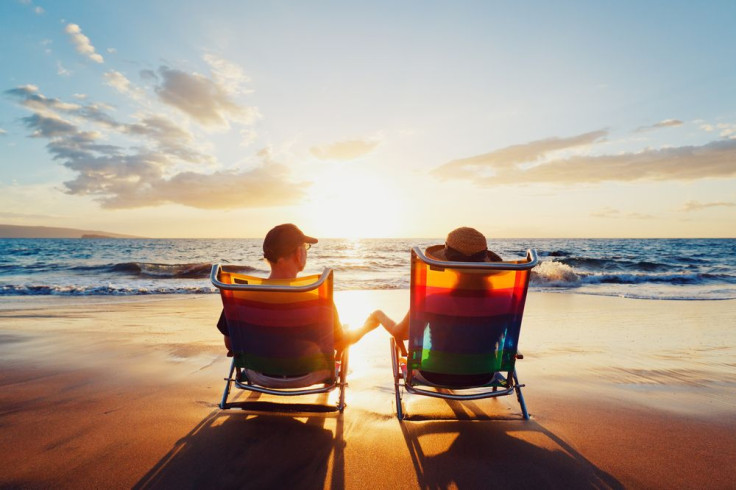Happiness Comes From New Experiences, Not Material Objects; Even When They Haven't Happened Yet

Imagine for a second, going to a place that you’ve wanted to travel to for quite some time; a Caribbean island, for example. Being on those sandy beaches, exploring rainforests and jungles, and swimming in clear waters will make almost anyone happy — much happier than buying a new TV or some new clothes. It turns out that these feelings of happiness occur earlier than we might expect. According to a new study, simply anticipating a joyful experience brings more happiness than waiting to buy material things.
The researchers, from Cornell University, conducted their study with the intent of striking the right balance between material and experiential happiness. Previous research has shown that life experiences make people happier than buying material things. After all, a memory lasts a lifetime (or at least until the person develops Alzheimer’s) while material objects get old, sooner or later turning into trash. Pairing this concept with evidence that some people hold off on an experience so that it can be even more fulfilling later, the researchers wanted to see if happiness came earlier in the process, and which purchases made the biggest difference.
So, they conducted a round of experiments. In one of them, they had a group of participants contemplate either booking a flight to the Caribbean or going to the movies, or shopping for clothes or jewelry. They were asked to take note of any feelings — whether happiness or impatience — associated with these thoughts. In another one, over 2,000 adults were asked at random times through phone messages if they were thinking about future purchases, Quartz reported. If they were, they were asked to indicate whether it was for a material or experiential purchase, and whether they felt pleasant, excited, or impatient and anticipatory. Other experiments asked participants to recall their feelings from a time when they waited in line to make a purchase.
The researchers found that people who waited to buy an experience were more likely to report happier feelings than those waiting to buy material objects. They also found that people who waited in line tended to feel happier, and were calmer, when they were waiting for an experience. “You sometimes hear stories about people rioting, smashing windows, pepper-spraying one another, or otherwise treating others badly when they have to wait,” co-author of the study Amit Kumar said in a press release. “Our work shows that this kind of behavior is much more likely in instances where people are waiting to acquire a possession than when they’re waiting for tickets to a performance or to taste the offerings at their city’s newest food truck.”
Because experiences do so much to a person’s happiness, the researchers suggested that societies work toward improving overall wellbeing by building more parks, trails, beaches, and other forms of infrastructure. In doing so, people will not only look forward to their own experiences, but also toward experiences within among their community.
Source: Kumar A, Killingsworth M, Gilovich T. Waiting for Merlot: Anticipatory Consumption of Experiential and Material Purchases. Psychological Science. 2014.



























